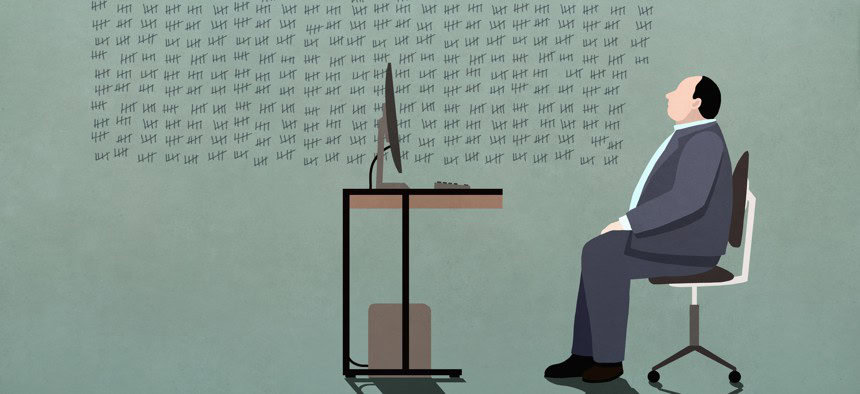
For many federal employees, retirement can be summed up in one word: freedom. Freedom from an alarm clock and from a supervisor telling you what to do and when to do it. But total freedom can be unsettling, and that can be compounded by financial considerations. All of which makes it next to impossible to say there’s a “right” age to retire.
This is especially true now that most federal workers are covered by the Federal Employees Retirement System. Under the old single-benefit Civil Service Retirement System, most employees planned to retire around their 55th birthday, assuming they had at least 30 years of service by then. CSRS made it possible to retire at a young age as long as your retirement dreams weren’t too expensive. And working longer would make retirement life even easier.
Under FERS, things are more complicated, because it includes three different benefits that come into play at different ages. For starters, you must have reached your minimum retirement age (between 55 and 57) to qualify for a FERS basic retirement benefit. Then there’s the age (between 62 and 70) to qualify for Social Security retirement benefits. Finally, for the Thrift Savings Plan and other tax-advantaged retirement savings plans, there are ages when you could be penalized for withdrawing funds too early and an age when you’re required to begin taking distributions.
There is no mandatory retirement age for most employees under FERS (with some exceptions, such as law enforcement officers and firefighters). The length of an employee’s service determines the size of their benefit. To receive an unreduced benefit at minimum retirement age, most employees need at least 30 years of service. Benefits are also payable at the minimum age with as little as 10 years of service (but with an age reduction of 5% for every year under 62), or unreduced at age 60 with at least 20 years of service, or at 62 with five or more years.
So, for example, a career FERS employee who has 35 years of service would receive a benefit of 35% of the average of their three highest years of salary if they retired at age 62 or later with 20 or more years of service.
For Social Security, the full retirement age is 67 if you were born in 1960 or later. That’s when you can get an unreduced benefit. If your full retirement age is 67 and you choose to claim your benefit when you first can at age 62, the benefit will be permanently reduced by 30%.
FERS employees who retire under age 62 receive a special retirement supplement included with their FERS basic retirement benefit to bridge the time until they qualify for Social Security. If an employee delays claiming benefits until beyond age 62, the supplement is not payable. That can create a dilemma for employees who want to wait until they reach full retirement age to claim Social Security benefits.
To round out the three parts of FERS, it is important to consider the age when you will begin taking distributions from your TSP account. Although the age to avoid a 10% early withdrawal penalty tax is 59½, the additional tax generally does not apply to payments made after you separate from service during or after the year you reach age 55.
As of this year, the age for required minimum distributions from retirement savings accounts like the TSP has increased from 72 to 73. Also, the tax penalty on the required amount not withdrawn has been reduced from 50% to 25%.
So what’s the best age for you? That depends on the provisions outlined above, how rewarding your work is, and your dreams for retirement.